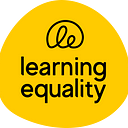Kolibri v0.13 is here!
It is with great joy that we announce the arrival of Kolibri v0.13, the Resource Management release! Available for Windows, Ubuntu/Debian, MacOS, Raspberry Pi, and Python. Download it here.
Please note: as with every Kolibri upgrade, while we do our best to ensure not too much changes in order to give a stable user experience, downgrading from a newer version of Kolibri to an older version is not an automatic process, so it is always good to test the new version before deploying with learners.

For this version of Kolibri, we focused on improving the experience of updating, importing, exporting, and deleting learning resources within Kolibri. We improved bulk and granular resource management, added a task manager that allows for simultaneous resource management tasks, information about channel updates, and integrated automated discovery of local Kolibri peers. These enhancements are sure to make the experience of managing your digital materials in Kolibri much more seamless and time-saving.

In addition, v0.13 brings a new MacOS app, which allows for Kolibri to seamlessly run on MacOS, with an integrated desktop experience. While this can also function as a server, this is the first step in our aim to create an app experience for using Kolibri outside of the current client-server model.
On the Coach side, reports are now downloadable and printable, and there have been significant improvements to the experience of managing lessons and quizzes, including a more intuitive activation process. In terms of accessibility, we bring two important enhancements: video transcripts, which allow you to follow along and navigate through videos with a text transcript when available, and improved keyboard navigation across the application.

Finally, we have also added new device settings, an improved learner quiz UI, more consistent layout and terminology, performance enhancements, and learner demographic data collection.
New features in Kolibri v0.13 include:
- Improved content management
- Queues and task manager
- Granular deletion
- Improved channel updating
- Disk usage reporting improvements
- Auto-discovery of local Kolibri peers
- Demographics collection and reporting
- MacOS app
- High-performance Kolibri Server package for Debian
- Pre-built Raspberry Pi Kolibri image
- Video transcripts
- Improved keyboard accessibility
- Downloadable and printable coach reports

Languages:
English, Arabic, Bengali, Bulgarian, Burmese, Chewa, Farsi, French, Gujarati, Hindi, Korean, Marathi, Portuguese (Brazilian), Spanish, Swahili, Telugu, Urdu, Vietnamese, and Yoruba.
What we’re working on next
- Full data synchronization functionality to allow for peer-to-peer and cloud-based data synchronization
- Coach-facing tips for improving pedagogical practice, drawn from the Kolibri Edtech Toolkit
- Improved content interoperability, with support for standards such as QTI, SCORM, H5P, and xAPI
- Offline creation of exercises and other content editing tasks
Additional support
- For help installing, configuring and using Kolibri, please refer to the User Guide.
- Learning Equality has created the Kolibri Edtech Toolkit, a set of resources to support understanding of use in a diverse set of contexts. It includes pedagogical and technical guidance for incorporating Kolibri into an educational program and creating effective learning environments, as well as an updated Kolibri Hardware Guide, now encompassing a broader range of field-tested hardware configurations and implementation models. Please note that the remaining resources in our Toolkit have not been updated to reflect v0.13 features yet.
Looking back
Our previous Kolibri releases contain a variety of new and improved features, such as support for right-to-left languages, advanced coach reporting tools, e-book support, and much more. Please refer to our historical Release Notes for more details.
Our thanks
Long before work began in earnest on v0.13, our implementing partners and users around the world have been sending us feedback about their experiences with Kolibri. This release would not have been possible without their feedback, and we’re hugely appreciative of the constructive and thoughtful input that made this release possible.
We’d also like to thank all members of the open-source community for testing, reporting issues, and even contributing fixes to the v0.13 codebase to ensure a stable platform!
Finally, we want to extend our deepest gratitude to our incredible community of translators:
Ashley Takami, Pyae Sone, and May Thet Khine Nyein for teaming up to make #KolibriFly in Burmese, Stéphane Moutier for his work with French, Bo Ming for contributing Korean translations, Shrenik Bhura for translating Kolibri into Gujarati, Ambraluna Prete and the team at Translators Without Borders for making Kolibri v0.13 available in Bengali, Chewa, Hindi, Swahili, Vietnamese, and Yoruba, Lydia Bassaly and her team at Natakallam for their work on Arabic, Farsi and Urdu, Devaki Kunte and her team at the Language Services Bureau for their work on Marathi and Telugu and, finally, to Melli Popova and the team at Education without Backpacks for contributing Bulgarian translations.
We couldn’t have done it without you guys, we are humbled by your continuous support!
And if you too speak English and another language, and want to help translate, please contact us at i18nteam@learningequality.org.
Join our community!
There are many ways in which you too can help make quality educational materials and digital tools accessible by everyone:
You can test the latest version of Kolibri and if you see an issue or want to make a suggestion, please don’t hesitate to send us feedback via the Community Forum.
Already using Kolibri? Share your story with us via the Community Forums or send us an email at info@learningequality.org.
We thank our community for an incredible 2019 and wish you all a Jolly Holiday Season and a Happy 2020!


